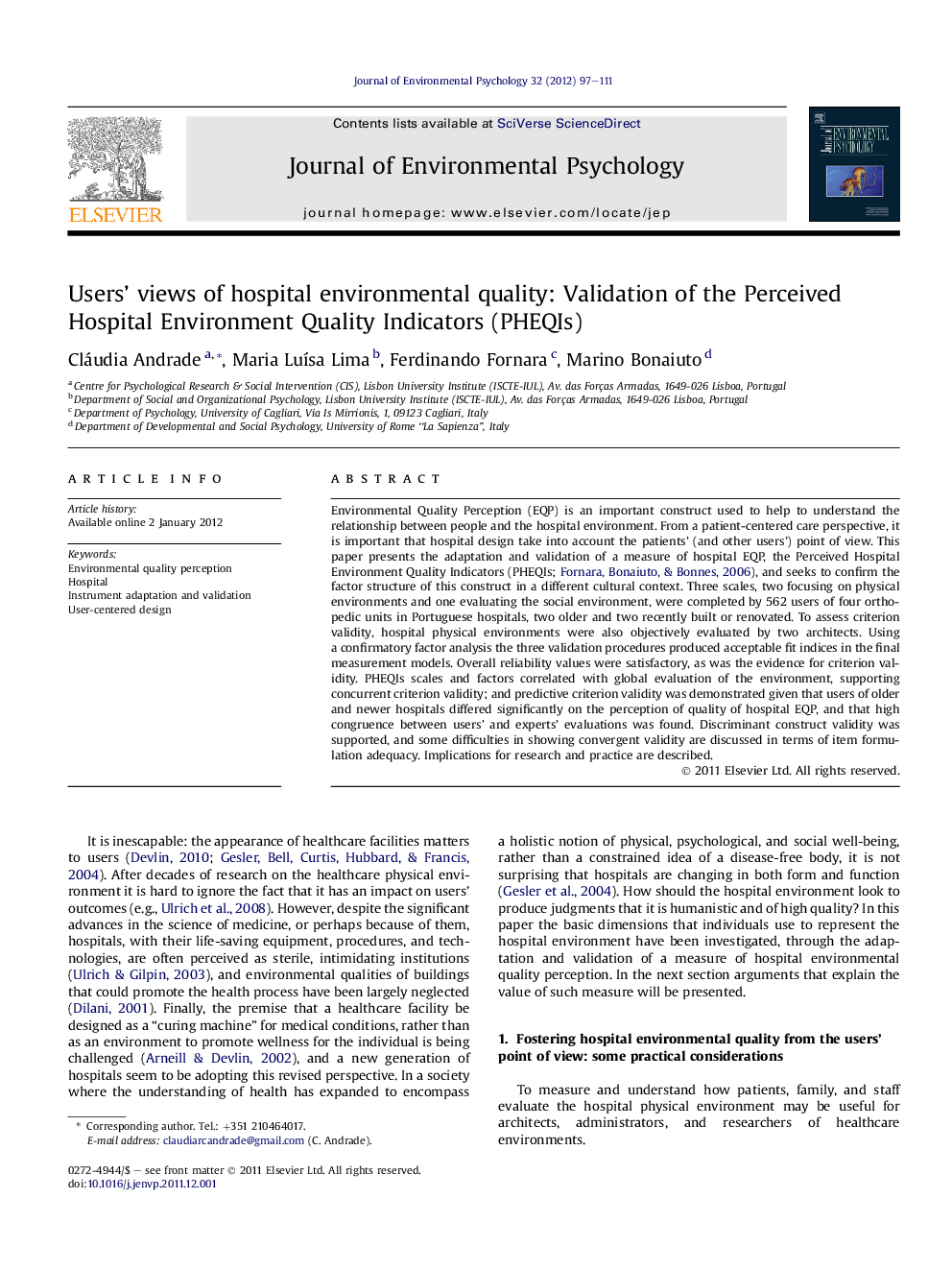| Article ID | Journal | Published Year | Pages | File Type |
|---|---|---|---|---|
| 885646 | Journal of Environmental Psychology | 2012 | 15 Pages |
Environmental Quality Perception (EQP) is an important construct used to help to understand the relationship between people and the hospital environment. From a patient-centered care perspective, it is important that hospital design take into account the patients' (and other users') point of view. This paper presents the adaptation and validation of a measure of hospital EQP, the Perceived Hospital Environment Quality Indicators (PHEQIs; Fornara, Bonaiuto, & Bonnes, 2006), and seeks to confirm the factor structure of this construct in a different cultural context. Three scales, two focusing on physical environments and one evaluating the social environment, were completed by 562 users of four orthopedic units in Portuguese hospitals, two older and two recently built or renovated. To assess criterion validity, hospital physical environments were also objectively evaluated by two architects. Using a confirmatory factor analysis the three validation procedures produced acceptable fit indices in the final measurement models. Overall reliability values were satisfactory, as was the evidence for criterion validity. PHEQIs scales and factors correlated with global evaluation of the environment, supporting concurrent criterion validity; and predictive criterion validity was demonstrated given that users of older and newer hospitals differed significantly on the perception of quality of hospital EQP, and that high congruence between users' and experts' evaluations was found. Discriminant construct validity was supported, and some difficulties in showing convergent validity are discussed in terms of item formulation adequacy. Implications for research and practice are described.
► PHEQIs assess perceptions of hospitals' physical and social environments. ► The factor structure of PHEQIs scales was tested in a different cultural context. ► Confirmatory factorial analysis showed the adequacy of the measurement models.
